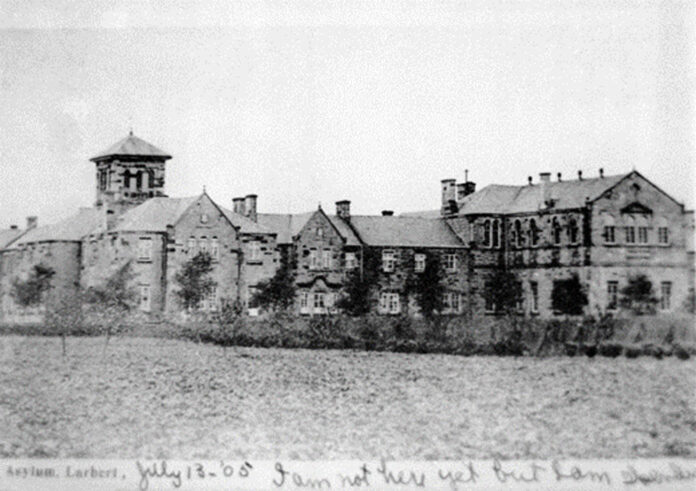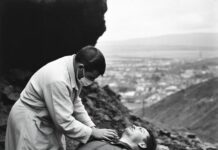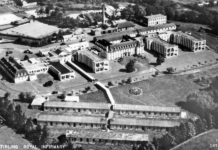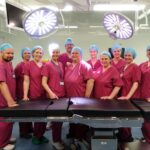Stirling District Lunatic Asylum (SDA) was established in 1865 by the Stirling District Lunacy Board. The first patients were admitted in June 1869, many being transferred from asylums in Glasgow, Edinburgh and Dundee. Located in Larbert, the institution was renamed Bellsdyke Hospital in 1960.
Groome’s Gazetteer described the original asylum as of ‘mixed Scottish Baronial style and Italian’… with two long verandas and two towers 90′ high at the back of these wings…all the cooking is done by gas and hot pipes were laid for the warming of the air during cold weather’.
The image doesn’t make it look so inviting though!
One of the more remarkable aspects of Stirling District Asylum was its pioneering approach to the treatment of those with mental health conditions. From the outset, the Superintendent of the Asylum pushed for inmates to be referred to and treated as patients; a real change from the attitude that prevailed at the time which tended to label them as state prisoners.
The Passing Hour was a magazine and chronicle of the SDA, the first issue was published in January 1901, and the final issue was published in 1917. The magazine was published every two months with volumes containing photographs, poetry, correspondence, as well as short stories, many written by the patients themselves.
One very moving piece, published in September 1906, describes the ‘Lady Cecilia,’ 73 years of age and “the sweetest old lady in the hospital.” She had been a resident since 1869, probably one of the asylum’s first occupants.
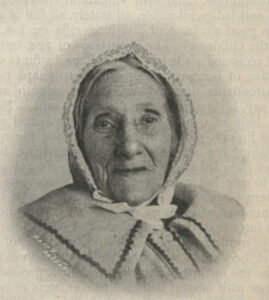
She lives in a peopled world of her own, which is a very beautiful one, filled with kings and queens, princes and princesses, lords and ladies, all noble, all stately, all full of grace and dignity, abounding in good works, and lavishing gifts on her… and is as gentle and refined as a lady of quality of the olden time, and she still retains a smattering of French, picked up, she says, when she was in France with ‘Papa’ finishing her education.
She never murmurs, never complains, never gives the slightest trouble… [but] she is, however, greatly distressed at any noisiness or disturbance by the more turbulent of her ward companions.
This extract gives a poignant glimpse into the life of just one of the asylum’s patients, and it reveals much about the dignity and respect afforded to residents by the asylum staff.
If you have any memories about life as a member of staff at Bellsdyke Hospital, it would be lovely to record your recollections so that we can enhance and enrich the more recent history of the Bellsdyke Hospital site. Please contact fv.CorporateRecords@nhs.scot
